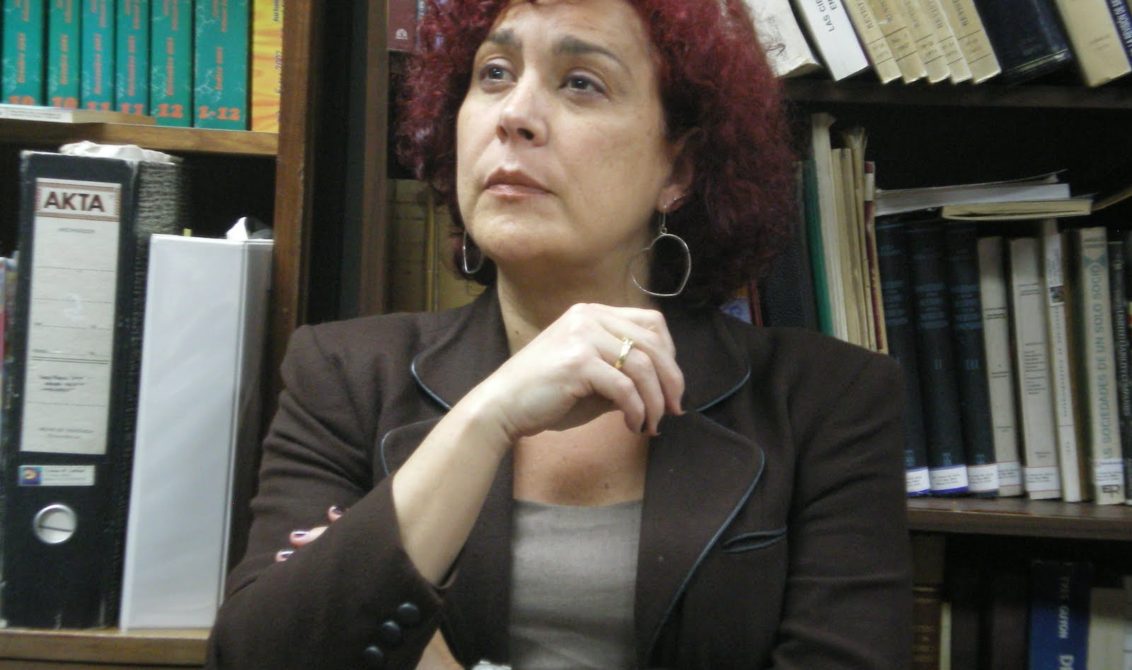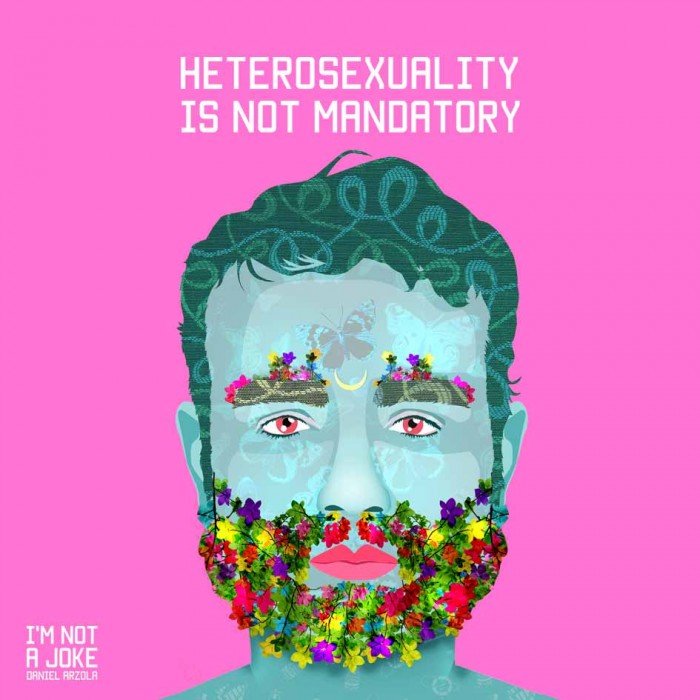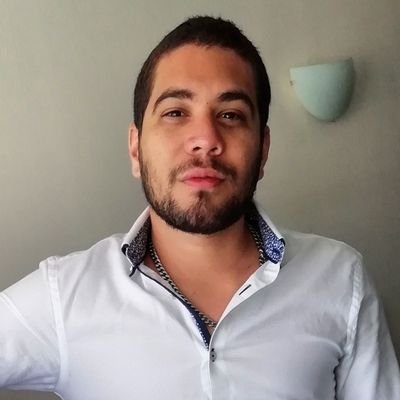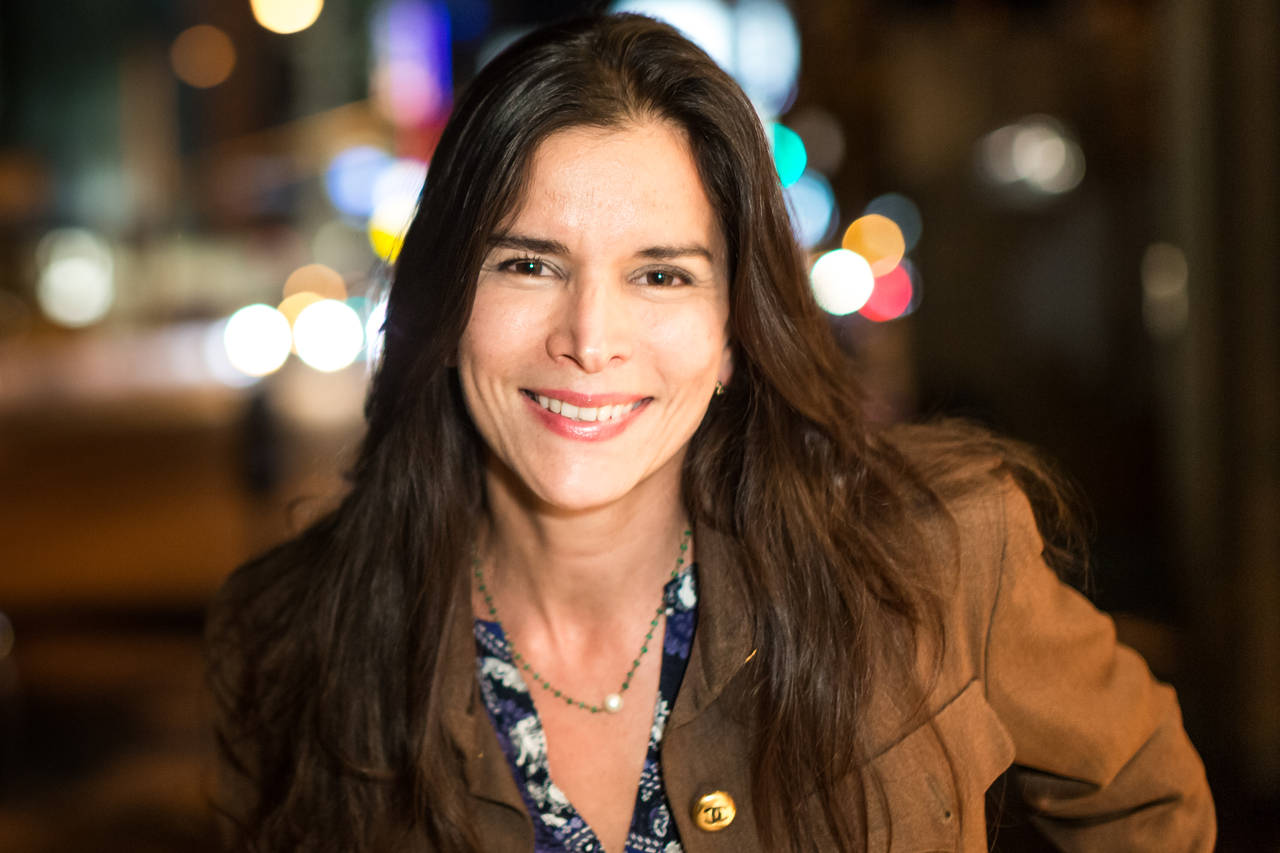Venezuela’s Trailblazers of Pride
As Pride Month comes to an end, Caracas Chronicles brings a small list of some openly gay, lesbian and transgender Venezuelans from every stripe that we can look up to and feel proud of.


Photo: Equaldex, retrieved.
Tamara Adrián

SuNoticiero.com
In 2015, lawyer, activist and university professor Tamara Adrián became an alternate deputy of the National Assembly, the first transgender person to be a member of parliament in Venezuela, and the second to be part of a national legislature in the Americas.
It’s been a long way for Adrián since she started to transition in the 1990s, and her struggle still continues. Despite asking the Supreme Tribunal a correction on her legal name and gender, Adríán has yet to receive a response.
Boris Izaguirre
Columnist, writer, and TV presenter, Izaguirre is one of the earliest high-profile celebrities to wear his gayness on his sleeve, in a time when LGBTQ representation on television mounted to homophobic jokes on comedy shows and stories about AIDS on the news.
Although it may not seem much now, seeing him achieve mainstream success, first in Venezuela and later in Spain, was truly revolutionary. An unlikely pioneer to future generations.
Quiteria Franco
Activist, researcher and university professor, Franco is a point of reference on LGBTQ activism in Venezuela. Besides her work as General Coordinator of Unión Afirmativa, she’s part of the UN Women’s Civil Society Advisory Group for Latin America and the Caribbean.
Her tireless work denouncing the lack of progress on LGBTQ rights in the country to international organizations such as the UN and the OAS has been fundamental to counteract the false narrative of the Bolivarian Revolution as champions of marginalized groups.
Daniel Arzola

Daniel Arzola’s “I’m Not A Joke.”
Daniel Arzola defines himself as an Artivist. Through his bold, colorful, tantalizing style, he brings awareness to the prejudices LGBTQ people have to face in their lives. His I’m Not A Joke series, made up of illustrations depicting queer characters along with empowering messages, has received worldwide attention.
Among the accolades Arzola has received for his work are Logo’s Trailblazer Honors Award and being part of Madonna’s official selection for her Art for Freedom initiative.
Esdras Parra
Born in Mérida in 1939, Parra moved as a man to Europe in the 60s, where she transitioned, and returned to Caracas in 1971, earning recognition as a poet, writer, translator and editor.
Her achievements include leading El Nacional’s Papel Literario, the literary supplement of one of the country’s leading newspapers, starting her own cultural magazine Imagen, and being the first transgender woman to win the Poetry Award of the II Mariano Picón Salas Biennial n 1993. She passed away in Caracas, in 2004.
José Manuel Simons

José Manuel Simon’s Twitter account.
Venezuela, at the moment, is behind most South American countries when it comes to LGBTQ rights. It’s the work of lawyers to change this, and that’s where José Manuel Simons, legal director of Venezuela Igualitaria, comes in. Simons has led the battle for same-sex marriage, transgender rights for having their identity recognized, and legal protection for LGBTQ individuals.
In 2016, Simons had his biggest court victory yet, when the Supreme Tribunal of Justice recognized the parental rights of Migdely Miranda and her late wife Ginyveth Soto, over the child they had over in-vitro fertilization.
Yulimar Rojas
The world of sports isn’t known for being easy for LGBTQ people, but orientation doesn’t matter if you reach the top of your field. Openly lesbian Rojas, a track and field athlete, has the distinction of winning a Silver Medal for Triple Jump during the 2016 Rio de Janeiro Games, becoming one of 15 Venezuelans to win a medal in the Olympics.
Currently part of the Barcelona FC track and field team, she’s considered one of the top athletes in the world.
José Vicente de Santis
In 1986, 26-year-old de Santis became one of the countless numbers of gay and bisexual men affected by HIV. Instead of resigning himself to a secret death, de Santis became one of the earliest HIV activists in the country.
For 11 years he insisted on proper treatment for HIV-positive individuals from government agencies, bringing awareness to a condition that was seen by mainstream society as a natural consequence of his orientation.
Patricia Velásquez

Tupuntodecorte.com
Velásquez rose to fame in the 90s and 2000s with her work as a model for Gucci and Chanel. She’s also an actress, appearing on shows like Arrested Development and The L Word. But probably her proudest work comes from the Wayúu Taya foundation, a charity she created in 2002, dedicated to helping the indigenous Wayúu people, her very own ancestors.
In 2015, she came out as gay, after years of speculation. In 2018, the OAS appointed her as a Goodwill Ambassador for the Rights of Indigenous People in the Americas.
Oswaldo Reyes
Reyes founded in 1994 the NGO Movimiento Ambiente de Venezuela, one of the earliest LGBTQ organizations in the country, with a focus on policies addressing the issues concering the gay community.
In 1999, he became the first openly gay person to run for public office as deputy of the Constituent Assembly that would enact the 1999 Constitution. Although he didn’t win and MAV would eventually split, his efforts were influential on the emergence of LGBTQ organizations in the late 90s and 2000s.
Caracas Chronicles is 100% reader-supported.
We’ve been able to hang on for 22 years in one of the craziest media landscapes in the world. We’ve seen different media outlets in Venezuela (and abroad) closing shop, something we’re looking to avoid at all costs. Your collaboration goes a long way in helping us weather the storm.
Donate




